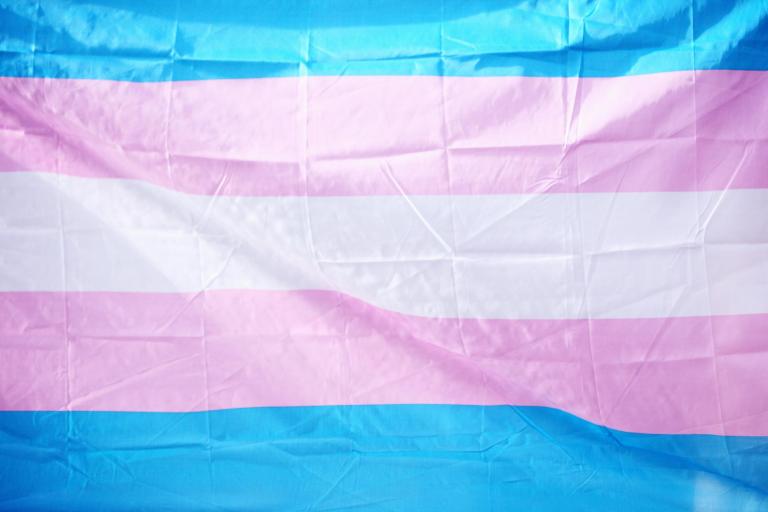
Has your child recently come out to you as transgender, but you’re not sure how to react?
Do you want to support them, but feel in over your head on gender terminology?
Raising any child requires dedication, hard-work, and understanding. It comes with fights, worrying, and other obstacles as you navigate parenthood and do your best to raise a happy, healthy adult. If your child has recently come out to you as trasngender, non-binary, gender-fluid, or any gender identity that you don’t know much about, you may be struggling with how to best support your child. We want to help you do that.
Defining LGBTQ+ Terms
It is important to recognize the differece between biological sex – which is associated with reproduction and anatonmy – and gender – which is a social construct when learning about transgender terms. In general, transgender or trans is a term that encompasses numerous gender identities of those who do not identity with their sex assigned at birth.
Cisgender/cis: Cisgender is a term used to describe individuals who identity with the sex they were assigned with at birth. In other words, cis individuals are not transgender. A majority of the population falls under this term.
Gender fluid: A changing or fluid gender identity
Nonbinary – Genders other than male/female. Note: not all nonbinary people identify as trans and not all trans people identify as nonbinary.
Gender neutral – Having no gender or having a gender that is neutral.
Trans Woman – Typically describes someone who is assigned male at birth who identifies as a woman (also known as male-to-female, MTF, M2F, trans feminine)
Trans Man – Typically describes someone who is assigned female at birth who identifies as a man (also known as female-to-male, FTM, F2M, trans masculine)
How to Show Love and Acceptance
- Become educated. Don’t let all of these definitions overwhelm you – it is normal to not understand everything about something you haven’t been exposed to before. At the same time, it will benefit both you to learn about the differences between sex and gender and some of the identities that are out there. Your willingness to learn also shows your child that you care about who they are and want to validate their identity.
- Do not grieve in front of your child. It may feel like you’ve lost your child as they were, but they are not the person to share these feelings with. It is important that you unconditionally
 accept your child so they can thrive as a happy and healthy version of themselves.
accept your child so they can thrive as a happy and healthy version of themselves. - Gender your child correctly and don’t “deadname” them. Remember to ask what pronouns your child uses (he/him, she/her, they/them, etc.), because by using the right pronouns, you are validating their identity and showing that you care. “Deadnaming”, or calling them by their original name even after sharing their preference for another, is another thing to avoid. If you slip up – apologize! But refusing to acknowledge their gender identity or call them by a new preferred name can erode the trust and comfort your child feels with you.
- Do not try to “treat” your transgender child for their identity. Do not use therapy as a punishment or a tool to fix your child – transgender is not an illness that needs to be “fixed.” The role of therapy for transgender individuals is to create a welcoming, accepting environment and to allow them to work with a caring professional that affirms their identity for what it is. Sending your child to therapy for their gender and/or sexual identity to be changed is not only ineffective – it is harmful.
- Consider attending counseling yourself. You may have your own mixed feelings and emotions about your child coming out as trans: from confusion, to grief, to acceptance, it is a journey for you too. Even so, it is important to remain a positive figure in their journey. If this case for you, you may want to consider counseling yourself. Having your own space to talk about your thoughts and feelings about your child’s journey to authenticity allows you to be a better support system for them. It can also help you work through your own misgivings, stigma, or lack of education on the topic.
Counseling for Parents Who Aren’t Sure What to Do
Transgender children face a number of obstacles that can make navigating their adolescence particularly challenging. Transgender teens are also more prone to having mental health issues such as depression and anxiety because of these obstacles. As a parent, you can make the choice to stand by their side as their biggest ally and advocate and help them come to a place of self-acceptance.
The list of questions you are asking yoursef as a parent of a transgender child may be long. It’s not uncommon for parents to feel guilty about not knowing how to respond or ashamed of their personal stigma – some which may be reflective of their own upbringing – against their child’s identity.
Our mental health professionals are here to understand hat you go through and work one-on-one with you to establish the appropriate response to your transgender child’s unique needs. At McNulty Counseling, you can work with an expert therapist who will help you cope with tricky period of time. You want to have an amazing relationship with your transgender child and you CAN.
Begin Counseling in St. Petersburg, Florida Today
Are you ready to partner with a counselor experienced in serving LGTBQ individuals, children and teens, and parents? If you are ready to start counseling, contact our center today for a  consultation with one of our expert mental health professionals!
consultation with one of our expert mental health professionals!
McNulty Counseling and Wellness is a family counseling clinic serving the St. Petersburg, Florida area. We want to support the mental health and emotional wellbeing of you, your child, and your entire family. Whatever you need to understand your trangender child’s needs, we are here. Contact us today to learn how to be a loving, compassionate, and supportive parent to your transgender child!
“We are not what other people say we are. We are who we know ourselves to be, and we are what we love.” – Laverne Cox, transgender actress and LGBTQ advocate




